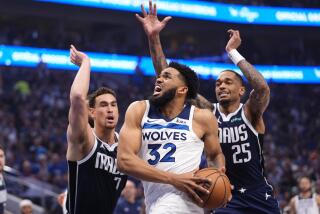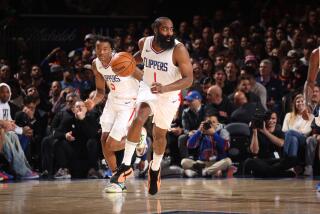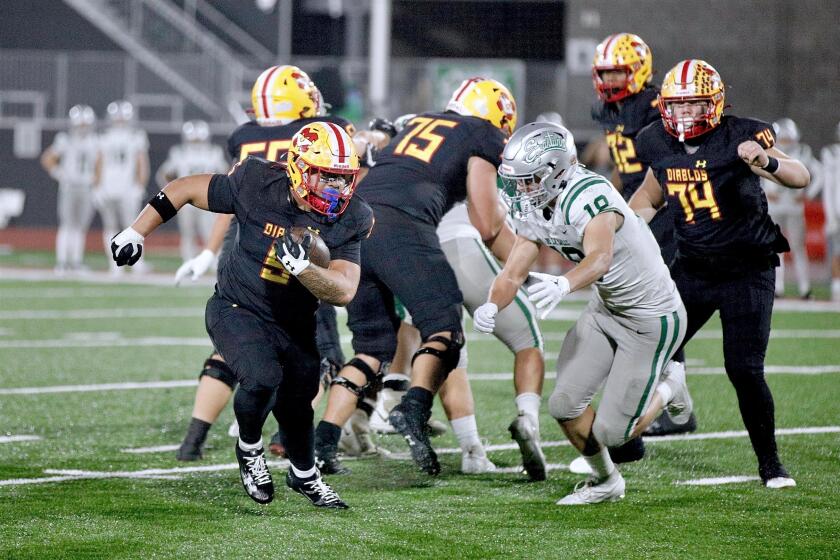Knicks are Losers in Marbury Deal
Just when it appeared they were reverting to normal, back to being the Numbskull Nets again, they do this. They do something bold and borderline brilliant to save their sorry season. They reinvent themselves as a clever franchise that’s willing and able to be a big-league player.
And you only wonder why the New York Knicks didn’t think of it first.
On Thursday, Stephon Marbury became a New Jersey Net. Maybe we should repeat that. He’s not with the Knicks, he’s with the N-E-T-S, Nets, Nets, Nets. The Coney Island kid who said his professional dream was to play in Madison Square Garden is now over at the Continental Baggage Claim Arena.
In the 11th hour of the NBA’s trading deadline, the Nets devised a complicated three-team deal that sent players scattered everywhere, but the linchpin of the trade wound up in the weeds of New Jersey. The Minnesota Timberwolves were compensated with a decent yet less expensive facsimile in Terrell Brandon. The Milwaukee Bucks get Sam Cassell, a maniac player who’ll fit nicely with their maniac coach, George Karl.
The winner, of course, is the Nets, who only get the best young point guard in the NBA and a potential MVP candidate for some years to come.
The loser? Maybe the team that didn’t participate. Maybe the Knicks.
This was one trade the Knicks should have made their own. They should have made it happen. Here was a 22-year-old who bled orange and blue, who would have made life easier in Patrick Ewing’s twilight years. But when they introduce the Knicks starters Friday night in Chicago, Charlie Ward will step on the floor. Not Marbury. Ward will be their point guard when the playoffs begin. Not Marbury.
As a backup point guard, Ward is excellent. As a starter, he belongs in Toronto. He isn’t the player you want to give 30 minutes a night at that position. He isn’t the kind who wins championships. And yet Knicks Vice President Ernie Grunfeld became so smitten by Ward that he gave him a lucrative, long-term deal. He essentially locked up Ward for perhaps the remainder of Ewing’s years, and capped out the Knicks. Their point guard of the future is the one they have at the present.
This is something to remember if Tim Hardaway or Mark Jackson exploits the only significant weakness on the Knicks in May.
You’d like to think the Knicks could have gotten Marbury, not cheaply, but easily enough. They had as much, if not more, than the Nets offered. Minnesota needed a point guard in return, and maybe the Timberwolves would have yawned at the prospect of getting Ward. But their antennae would have stood at attention had the Knicks included a throw-in:
Allan Houston.
This isn’t meant to greatly diminish or belittle Houston, but you must ask yourself: What has he ever done to make himself untouchable? Last anyone checked, Houston hadn’t made a single All-Star team, he couldn’t match Reggie Miller for heroics last spring when the Indiana Pacers dismissed the Knicks, and he can be a liability on the floor when his shot isn’t falling. Or haven’t you watched the last few games?
If anything, the value of Houston to the Knicks was reduced the day they obtained Latrell Sprewell. Suddenly, they had two players capable of scoring in the 20s and two players who occupy the same position. The Knicks became loaded at two-guard and stayed thin at point guard.
The question about role-clashing between Sprewell and Houston hasn’t yet been addressed because a fractured heel kept Sprewell on the bench for a month. Soon, it could become an issue, one the Knicks could’ve avoided had they upped the ante for Marbury.
Just maybe, a backcourt of Marbury and Sprewell could have taken the Knicks to a place they’ve never been in the Ewing era.
Marbury’s greatest gift to the Knicks would have been his ability to take over and win games. Last year the Timberwolves gave $121 million to Kevin Garnett, who was worth a dime in the final two minutes of games. The ball belonged to Marbury when it counted. Earlier this season, Marbury decided three outcomes during a six-game stretch. In a tight contest, he either gets to the basket or the free-throw line.
This is the element the Knicks crave. They need options, other than Ewing, when it’s time to win. This weakness was exposed recently when Ewing missed decisive shots against the Miami Heat and Milwaukee Bucks. It happened again Tuesday against Milwaukee, when Sprewell clanged a 20-footer at the buzzer.
So the advantage swings to the other side of the Hudson. Stunned by a 3-15 start, and after hitting rock-bottom Tuesday night with a 16-point loss to the post-Jordan Chicago Bulls, the Nets took desperate measures. Sure, it will cost them plenty. They may have to dip into the YankeeNets baseball profits to pay Marbury and Keith Van Horn. And one league GM said Thursday the Nets and Kerry Kittles have discussed an extention worth $8 million a year.
Doesn’t matter. The Nets have suddenly become watchable again. They have a future. They upgraded their season and franchise by stealing a point guard from a team that should have had him.
More to Read
Go beyond the scoreboard
Get the latest on L.A.'s teams in the daily Sports Report newsletter.
You may occasionally receive promotional content from the Los Angeles Times.










